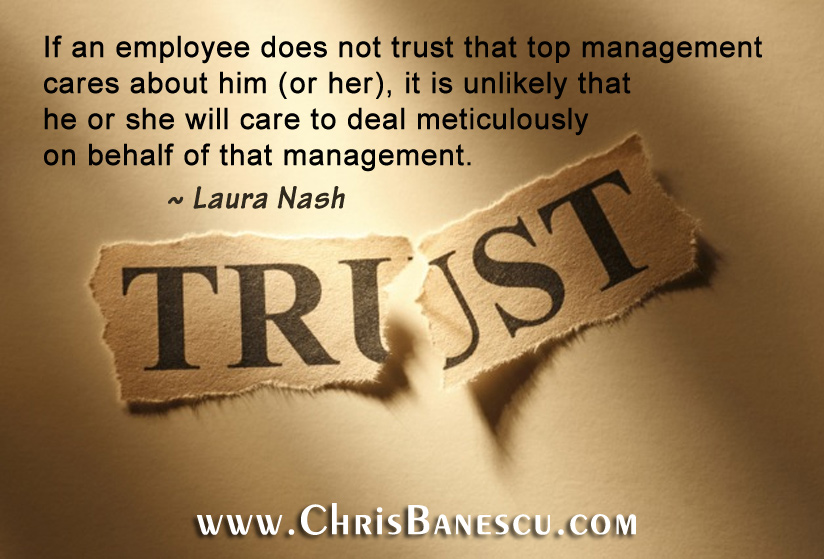 by Chris Banescu –
by Chris Banescu –
Employees are an organization’s most valuable resource. They must be managed fairly and equitably. They must be appreciated and respected. Leaders must strive to build relationships based on integrity, trust, and mutual understanding with the individuals they lead. Management must always remember that employees, especially engaged, loyal, smart, productive, and responsible ones are to be managed with care and concern.
Employees who are treated well, know their jobs are secure and management has their backs, are paid fairly and equitably, and are trusted and respected by their leaders and organizations, will be much more productive and loyal. They will literally give it their all and always strive to go “above-and-beyond,” safe in the knowledge that the company they work for genuinely cares about them and has a vested interest in their success and well-being. [Read more…]

 by Chris Banescu –
by Chris Banescu – “If an employee does not trust that top management cares about him (or her), it is unlikely that he or she will care to deal meticulously on behalf of that management.” ~ Laura Nash
“If an employee does not trust that top management cares about him (or her), it is unlikely that he or she will care to deal meticulously on behalf of that management.” ~ Laura Nash by Chris Banescu –
by Chris Banescu – by Chris Banescu –
by Chris Banescu – by Chris Banescu –
by Chris Banescu – by Chris Banescu –
by Chris Banescu –